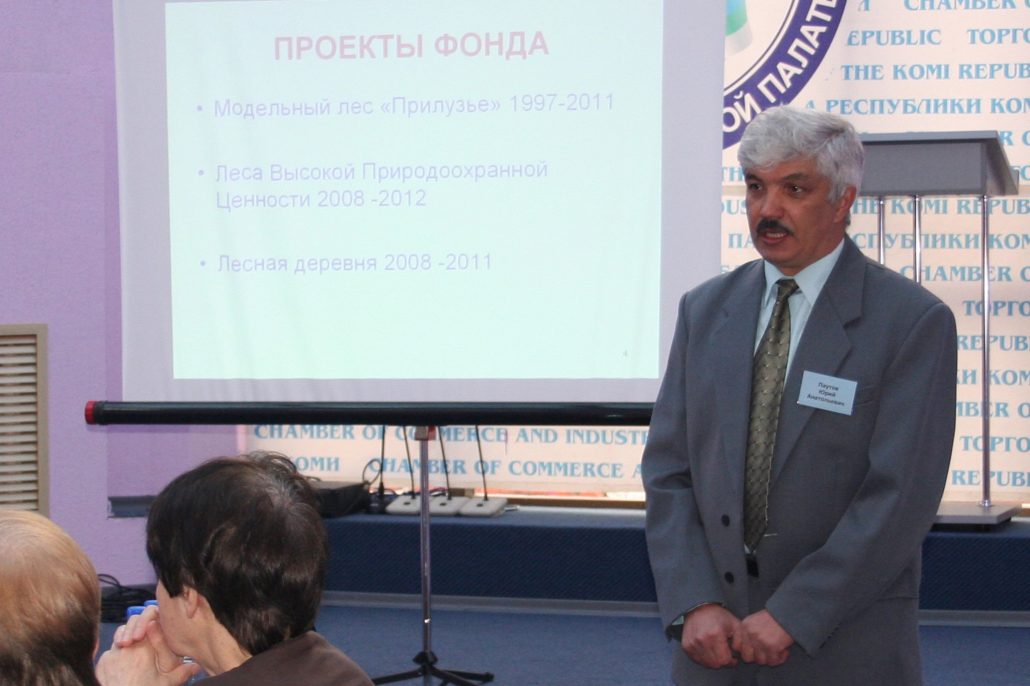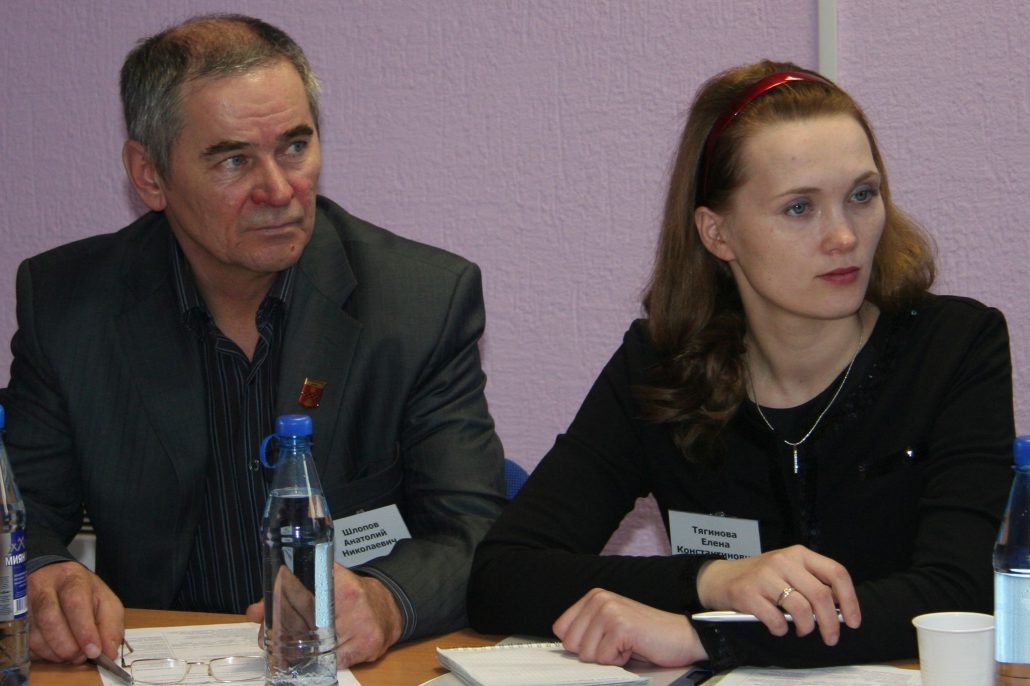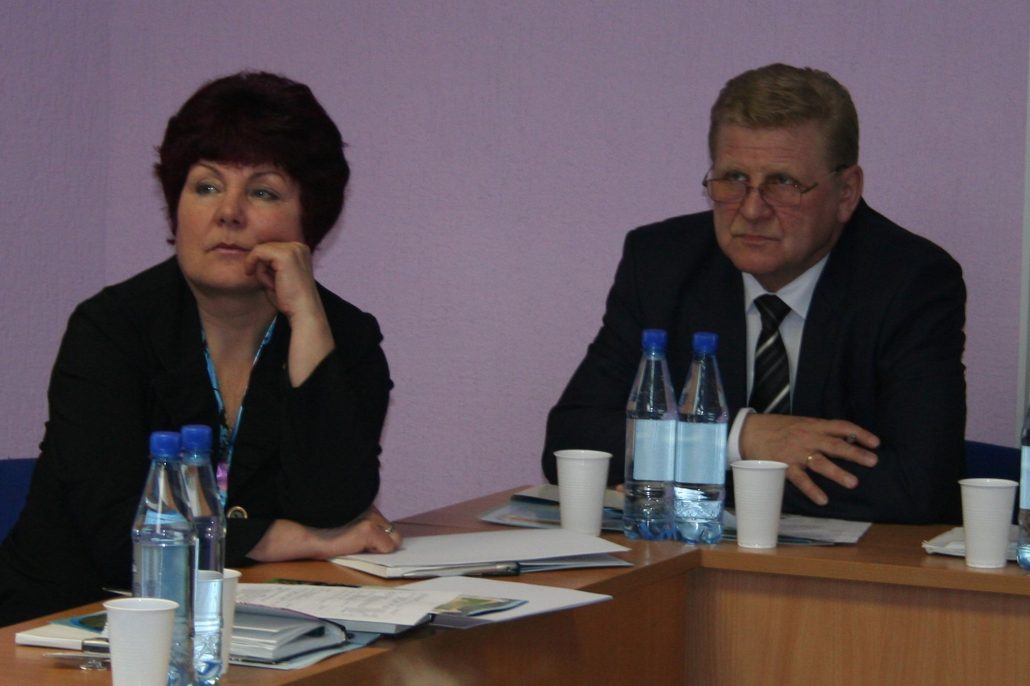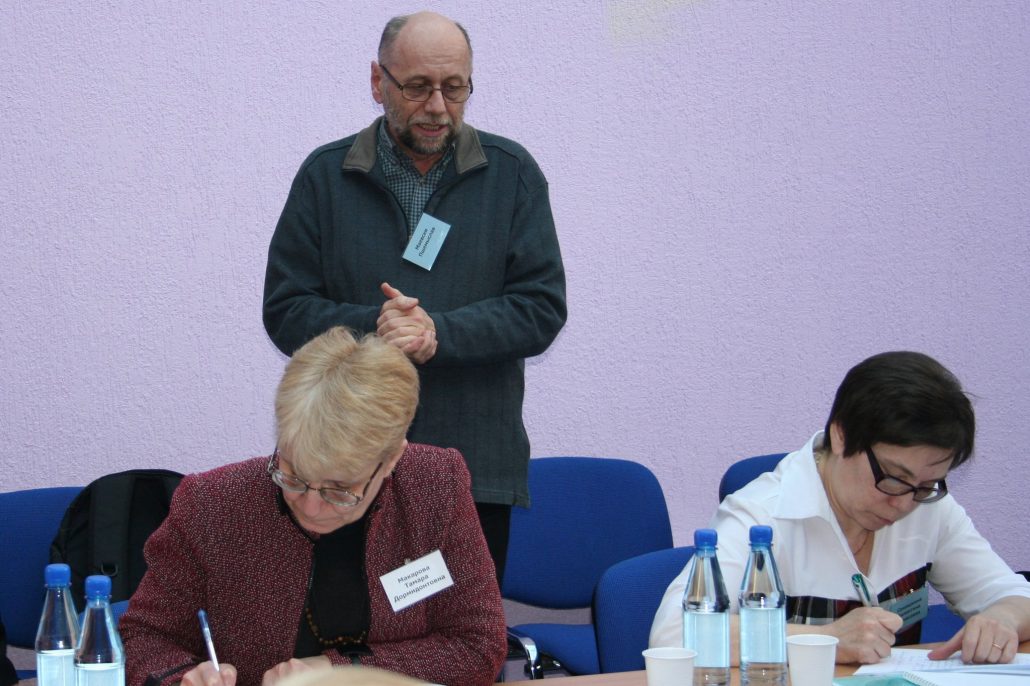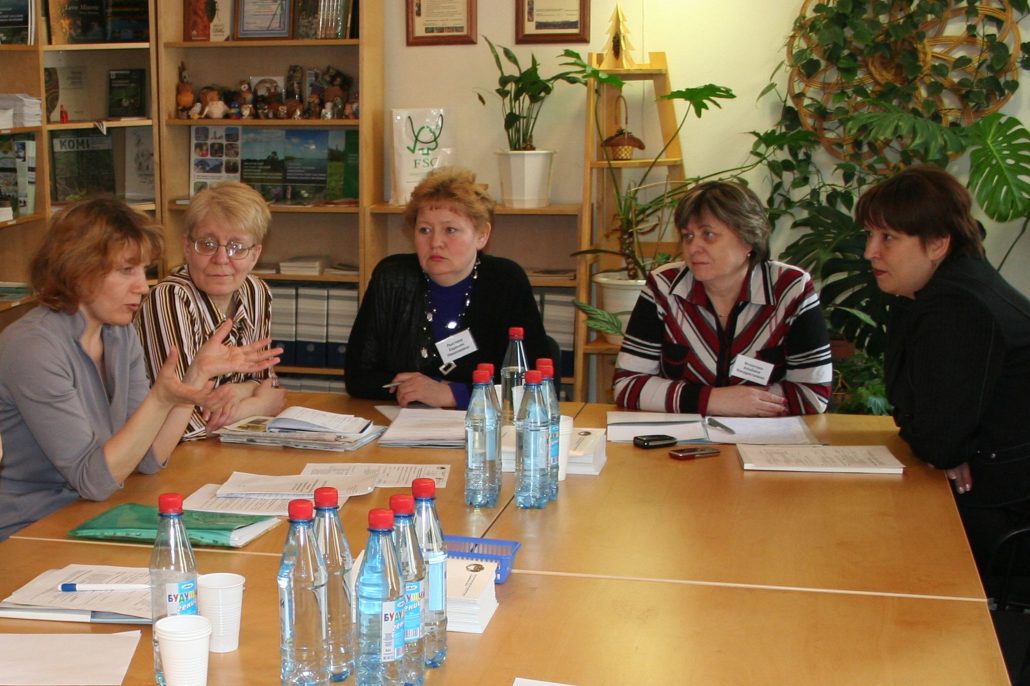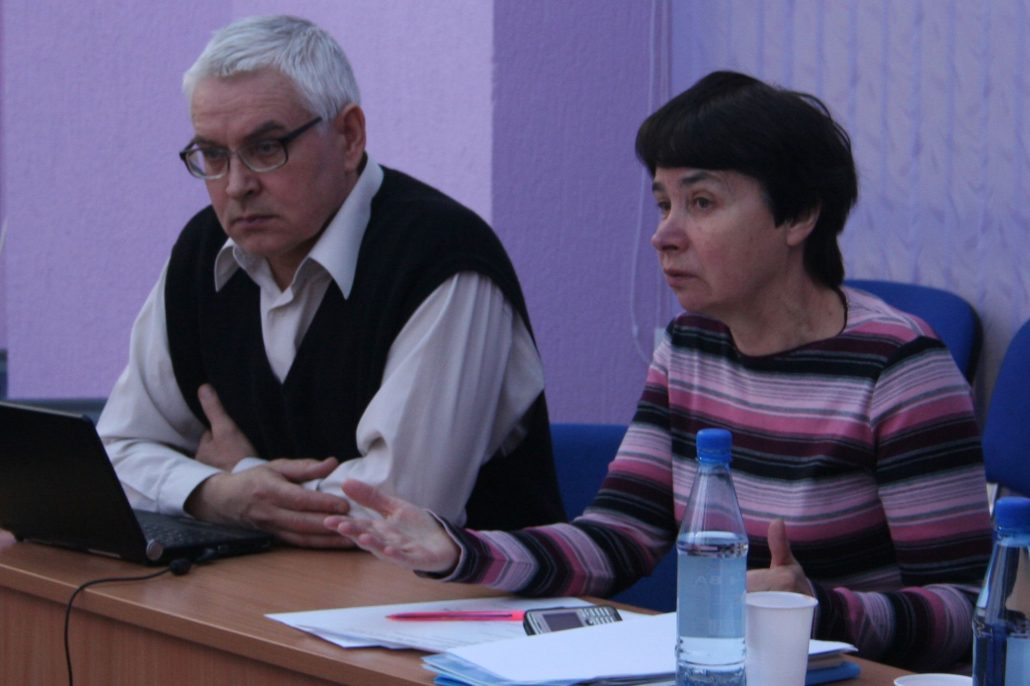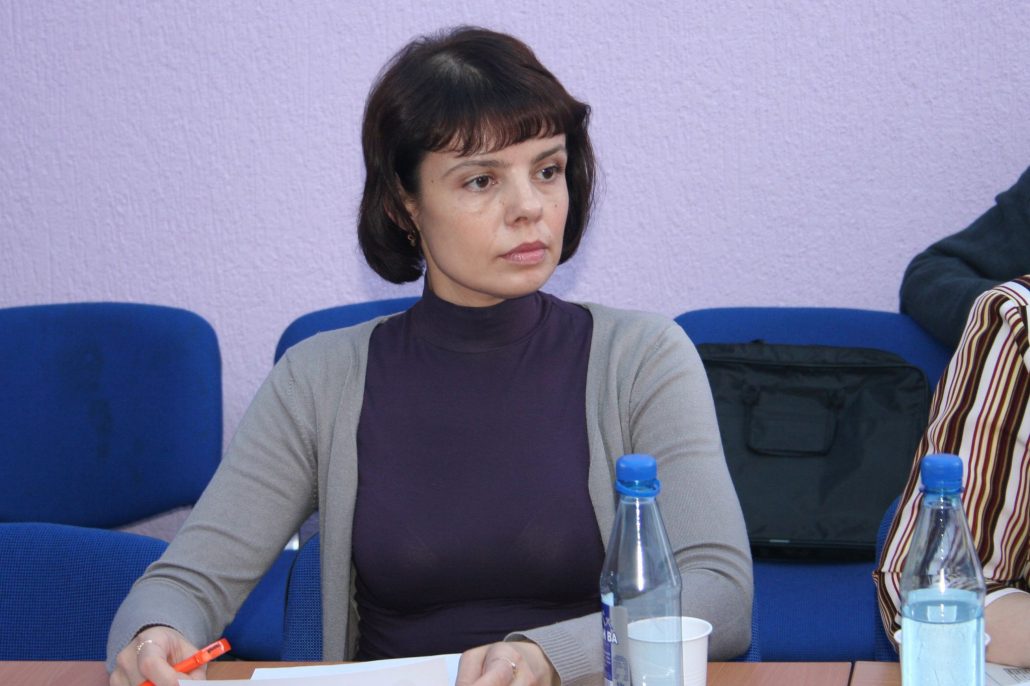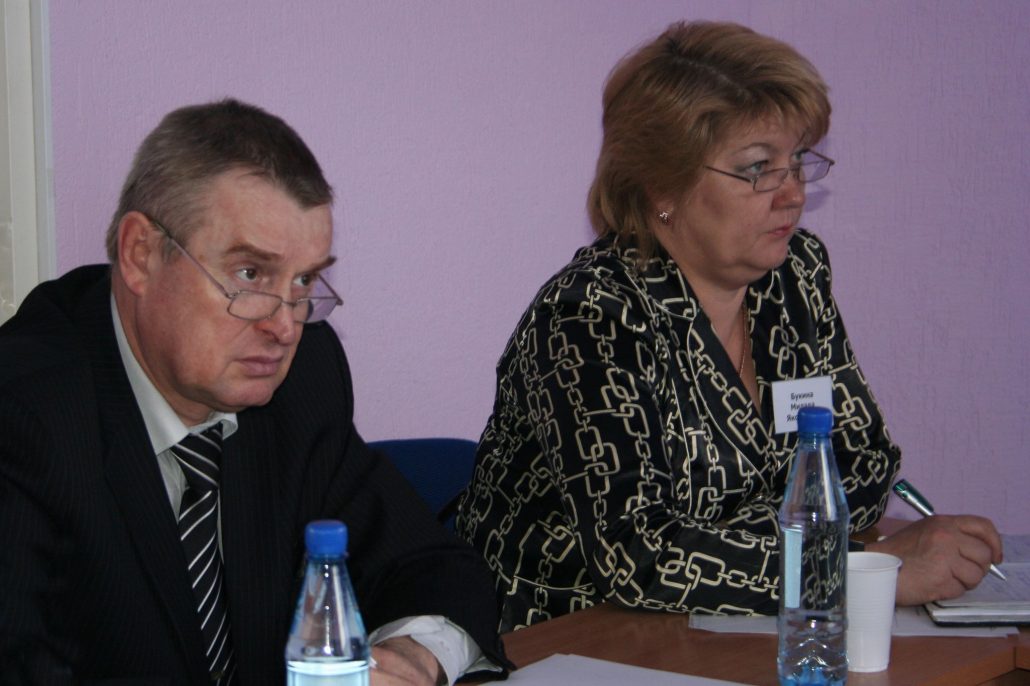«Forest Village: Ways Out of the Crisis, Problems and Conditions for Development»
This was the issue for discussion during the regular Forest dialogue organized by Silver Taiga Foundation in Syktyvkar on April 4-5, 2011. The results of the Forest Village Project were presented to the participants of the dialogue and the Project perspectives were defined as well.
The dialogue was attended by the representatives of the local population, science, NGOs, local self-government. The participants discussed the urgent rural problems, possible ways out of the crisis and conditions of the further development of the village. The Forest Village Project has been realized during three years aiming at searching of possibilities to improve the economic situation of the village in market conditions and to develop cooperation in rural communities. Advantages and disadvantages of the Project were also defined during the dialogue.
The participants were interested in the presentation (in Russian) of the investigation results made under the Forest Village Project by the group of scientists from the Institute of Socioeconomic and Energetic Problems of the North of the Russian Academy of Sciences in Syktyvkar. The presentation showed also the possibilities and limitations of local resources use and how to overcome these limitations.
Besides the investigation of resource, institutional and human potential of all nine “forest villages” the practical work has also been done under the Project. The aim of such work was to support local initiatives, formation of self-government and self-organization of the population, to prepare and educate local population concerning new types of economic activities, to carry out educational work with the local deputies, students and youth…
According to the participants of the dialogue and to the practical experience the Project activity dealing with traditional nature use support has been very popular in some remote rural regions (Udora, Ust-Kulom) due to lack of good roads and high level of unemployment. At the same time the territories of traditional nature use has no legal status and they are not protected from the industrial development.
Proposals on rational use of wild-growing mushrooms, berries, etc. and development of food forest products processing were presented by the example of Tomsk region of Russia as the group of rural businessmen from the Komi Republic has visited Tomsk under the Forest Village Project. Is it possible to adapt the proven experience of non-timber forest products use in the Komi Republic? Can the rural tourism (its development has also been supported under the Forest Village Project) become economically efficient and what to do to achieve it? Are the problems of the village typical only for Russia or it is a global tendency? If yes, then how are these problems solved in other countries? The participants of the dialogue tried to answer these and some other questions in order to define the reasons of the current state of the village, to see where we are now and how to act in the future.
The questions above were discussed in details by small groups formed during the dialogue. The participants of these small groups discussed the problems of the local business environment development – key factor of «forest villages» economic basis conservation; state of hunting, fishing, mushrooms and berries resources, ways of their regeneration and support; perspectives of territorial public self-government development in the Komi Republic.

